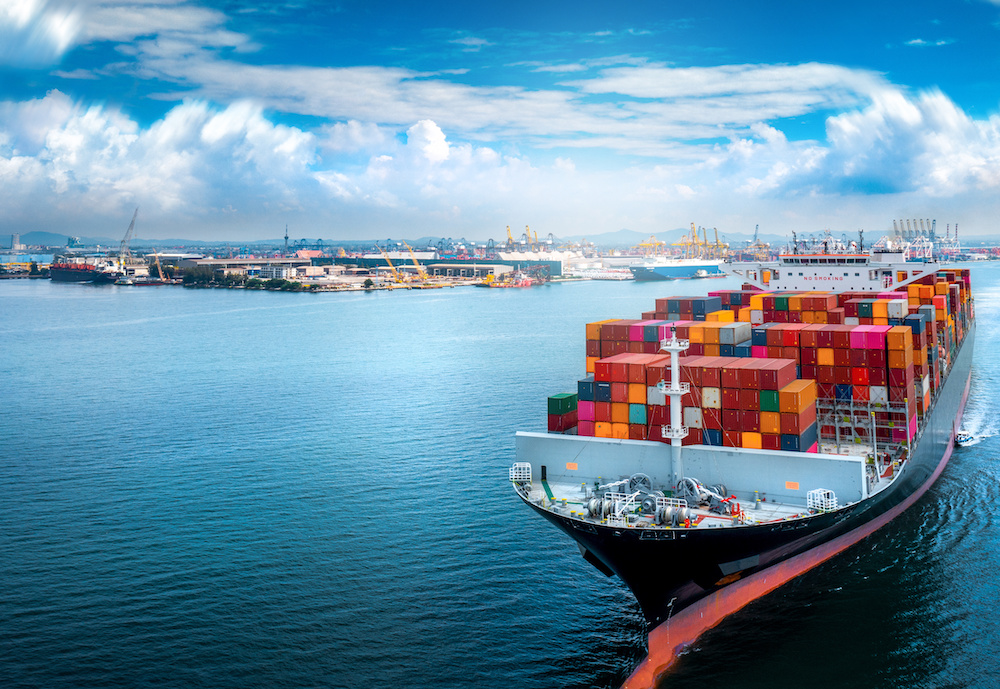 Andrew Watson-Steward Senior Cargo Underwriter, TT Club
Andrew Watson-Steward Senior Cargo Underwriter, TT Club

Cargo insurance has a vital role to play for many in the international supply chain, none more so than the cargo owners themselves. Liability for any loss or damage of cargo in transit can however be of concern to, and the responsibility of the service provider – forwarder, carrier, transport operator or broker. Insurance cover protecting against such losses or liabilities is of course widely available. But the differences between cargo and liability cover, and the limits of recompense that they provide are not always fully understood.
To consider insuring the cargo. It is estimated that a large percentage (as high as 90 per cent on some trade lanes) of cargo is shipped uninsured. While the vast majority of shipments are completed uneventfully, clearly risk exists. Risks that could lead to the loss or damage of cargo in transit. The Standard Trading Conditions (STC) of most carrier and freight intermediaries, as well as the terms of international conventions that apply to global trade have limitations based on the weight or number of packages in a shipment. These limit the liability of the carrier in the event of a loss and can leave the cargo owner with a significant financial burden.
Experience suggests that this burden is often a surprise to the cargo owner who is expecting to be reimbursed in full by the operator. There are therefore, clear benefits to having additional cargo insurance in place. Not having such cargo insurance means the exposure to loss will be the difference in the commercial value of the cargo itself and the amount recoverable under the terms of the carrier’s liability policy.
In simple terms, cargo insurance covers all risk of physical loss or damage to the cargo, whereas liability insurance is negligence based, most usually on behalf of the carrier or forwarder. Cargo insurance also indemnifies the owner for the full value of the goods, whereas liability policies will be limited by either contract or convention. The two types of insurance serve two different purposes – cargo policies are to the benefit of the owner of the goods and liability cover protects the freight forwarder, carrier or relevant operator providing the transport service.
As to the high rate of uninsured cargoes, there are three factors at play. Firstly, the risk perception of cargo owners, or rather misperception as many have little concept of the true extent of risks that cargo is exposed to during international shipment. As a result, they often do not bother taking out insurance. Secondly, there is a common misunderstanding between the two types of insurance. Unless the forwarder or operator has explained at the time of taking the booking, not just these risks but also the limitations of its own liability according to its STCs, then the cargo owner is likely to make assumptions. These can be totally inaccurate assumptions about the extent of insurance cover in place when they hand their goods over into the care, custody and control of the operator.
Thirdly, of course, there are those cargo owners who are well aware of the risks involved and have assessed the cost of full value insurance, only to take the decision that taking a chance on loss or damage occurring, on balance makes economic sense. Unless the cargo is of particularly low value, or that the owner is a particularly large-scale shipper with experience of the route and nature of the transit, such ‘self-insuring’ might be an undue risk as well.
In many cases, the insurance premium may not be cost prohibitive. As an example: for a standard 20-foot container of general cargo moving from China to Western Europe with goods to the value of US$20,000, the premium would be calculated at a rate somewhere in the region of 0.1 per cent. In other words, the total value of the goods would be fully insured for $20. This is hardly prohibitive and yet, in conjunction with ignorance and a willingness to take a risk, the option of cargo insurance is often rejected by cargo owners.
Undoubtedly there are those who do not consider cargo insurance to be essential, making their decisions based on their own risk appetite, and arguably past experience. If a cargo owner is not inclined to buy the cover and has had a number of loss free years, they may consider their decision as a good business one. However, such experience does not preclude risk to future shipments. Good fortune may save costs over a long period of time but the costs associated with a single loss may outweigh the cumulative cost of past premiums by several fold.
In the context of cargo versus liability insurance it is worth devoting some words to another misunderstood insurance concept associated with shipping accidents, that of General Average (GA). A GA event is defined in the internationally agreed convention as “when, and only when, any extraordinary sacrifice or expenditure is intentionally and reasonably made or incurred for the common safety for the purpose of preserving from peril the property involved in a common maritime adventure”. All container ship voyages are classed as a ‘common maritime adventure’ and a GA ‘sacrifice’ might be jettisoning cargo to enable a grounded ship to refloat.
Employment of salvage tugs where the ship suffers an engine breakdown or is stuck in a waterway, can also be GA ‘expenditure’. In order to ensure that payment to cover this expenditure will be received, a specially appointed independent adjuster requires each party interested in the voyage (maritime adventure), in this case the owners of the cargo on board the ship, to provide a GA bond as security. Since this is done at the outset, before the full value of the loss is known, the adjuster will necessarily estimate. A GA bond is a promise to pay whatever contribution will later be assessed by the adjuster, backed up by a GA guarantee from a bank or insurance company. Should GA be declared, where cargo insurance is in place the insurer will respond and provide the necessary guarantees/securities to allow any salved cargo to be released.
If there is no cargo insurance in place, the cargo owner will need to provide their own guarantees, and in some cases make a cash deposit. Needless to say, such a payment could make a significant impact on a company’s P&L account. Moreover, GA cases have been known, because of their complexity (a factor of the size of modern container ships) to run for many years, which is a further consideration in making the decision to buy, or not to buy cargo insurance.
In conclusion, the primary message is, if cargo insurance is not in place and an incident occurs, the cargo owner is unlikely to be able to recover in full from contracted operators the total value of the lost or damaged goods.
For more information, please visit: https://www.ttclub.com/products-and-services/